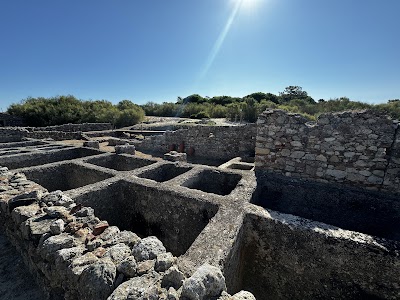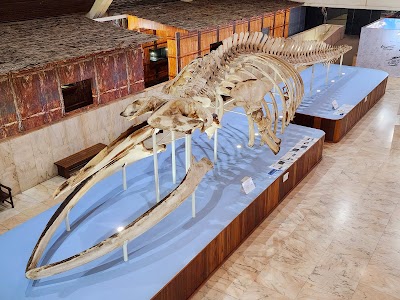Al-Mahari Mosque (مسجد المهاري)
Overview
Al-Mahari Mosque is a remarkable landmark located in the Sabha District, a region steeped in history and cultural richness in southern Libya. For foreign tourists eager to explore Libya's architectural and spiritual heritage, Al-Mahari Mosque offers a fascinating window into the country's Islamic traditions and community life.
The mosque's history spans several decades, playing a pivotal role in the religious and social fabric of the local community. Built as a place of worship, gathering, and education, Al-Mahari Mosque reflects both traditional values and the impressive architectural heritage of Islam. With its pristine whitewashed walls and towering minarets, it stands as an exquisite example of Islamic architecture in North Africa, harmoniously blending simplicity with grandeur, creating a serene ambiance for worshippers and visitors alike.
Upon entering the mosque, visitors are often enveloped by a profound sense of tranquility. The interior showcases intricate calligraphy and geometric patterns, hallmark features of Islamic art, contributing to the spiritual atmosphere. The spacious prayer hall can accommodate a large number of worshippers, underscoring the mosque's significance in the community. Elegant chandeliers, luxurious prayer rugs, and a beautifully detailed mihrab (prayer niche) enhance the overall majestic aura of the mosque.
One of the mosque's unique attributes is its function beyond mere worship. Al-Mahari Mosque frequently serves as a center for religious education and community meetings. Local clerics and scholars offer classes on the Quran, Arabic language, and Islamic jurisprudence, establishing it as a hub for learning and spiritual growth. This aspect is particularly enlightening for visitors interested in educational tourism.
The mosque also plays a vital role in fostering community relationships. During festivals such as Eid al-Fitr and Eid al-Adha, it fills with vibrant activities, from communal prayers to celebratory gatherings. These occasions provide tourists with an invaluable opportunity to witness and engage in local customs and traditions, leading to a deeper understanding of Libyan culture and hospitality.
For history enthusiasts, Al-Mahari Mosque presents a rich narrative of the region's development over the years. Having withstood various historical events, it has observed the political and social transformations of the area. Moreover, its proximity to other historical sites in the Sabha District makes it an excellent starting point for exploring Libya's broader historical and cultural context.
Visitors to Al-Mahari Mosque are encouraged to dress modestly, as it is a place of worship where respect for local customs is highly valued. Women are advised to cover their heads and wear long sleeves, while men should avoid shorts. Photography inside the mosque may be restricted to preserve the sanctity of the space, so it’s best to seek permission if you wish to capture any images.
Accessibility to the mosque is quite straightforward, with local guides and transportation options readily available for tourists. The friendly locals are eager to assist and offer insights, ensuring a pleasant visit. For those interested in culinary delights, nearby eateries provide a taste of traditional Libyan cuisine, enhancing the cultural exploration.
In summary, Al-Mahari Mosque is more than just a religious monument; it is a vibrant part of the local community in the Sabha District. Its architectural beauty, historical significance, and engaging community role make it a must-visit for tourists eager to immerse themselves in Libya’s Islamic and cultural heritage. Whether drawn by its spiritual ambiance, educational offerings, or aesthetic charm, a visit to Al-Mahari Mosque promises to be both enriching and memorable.




